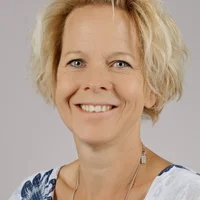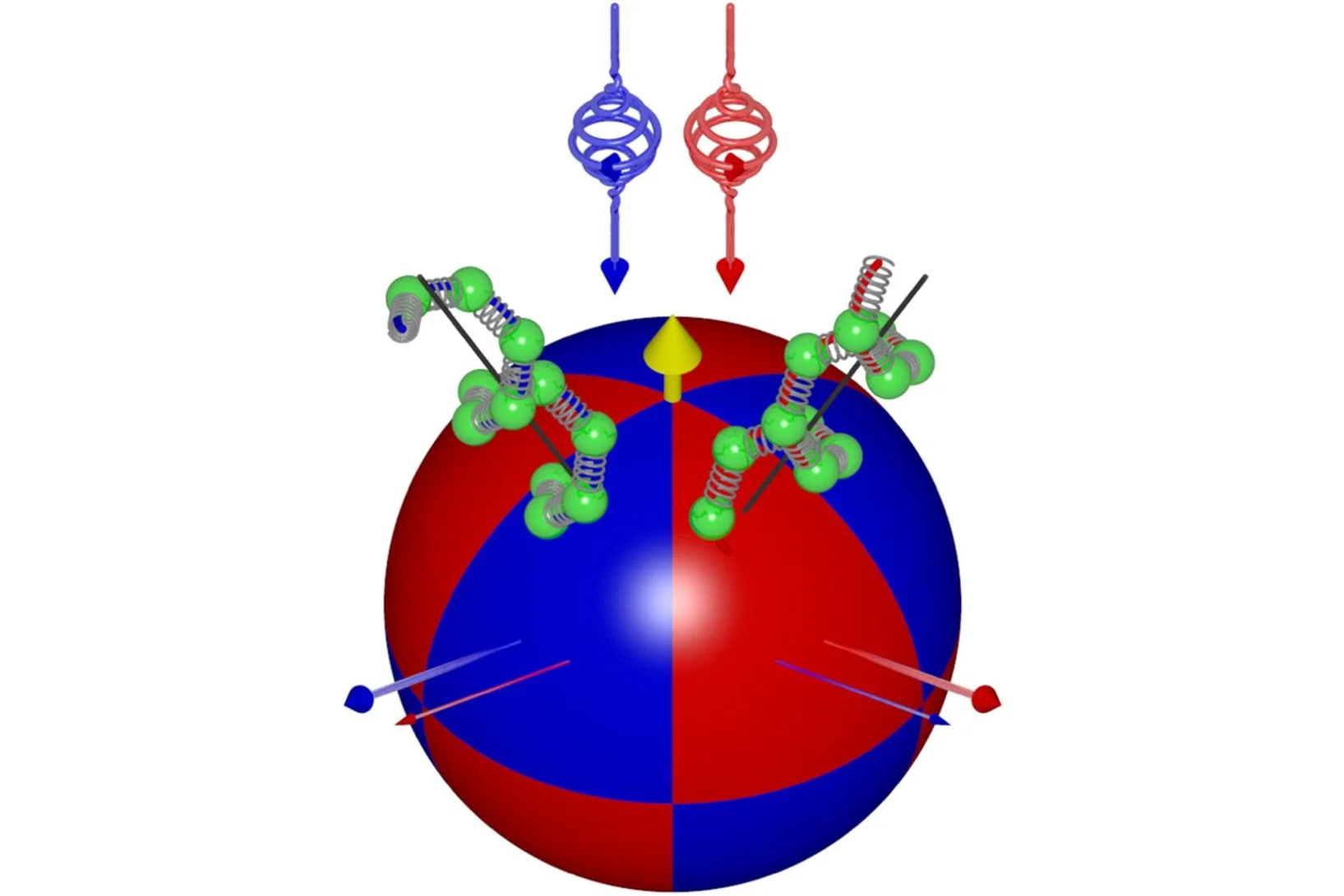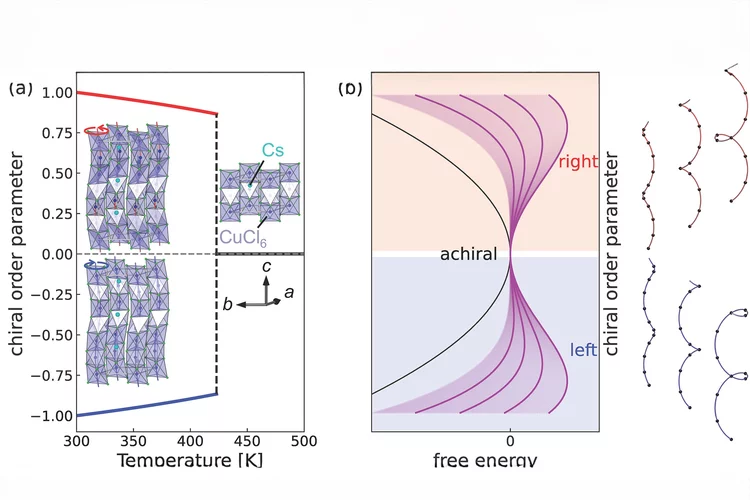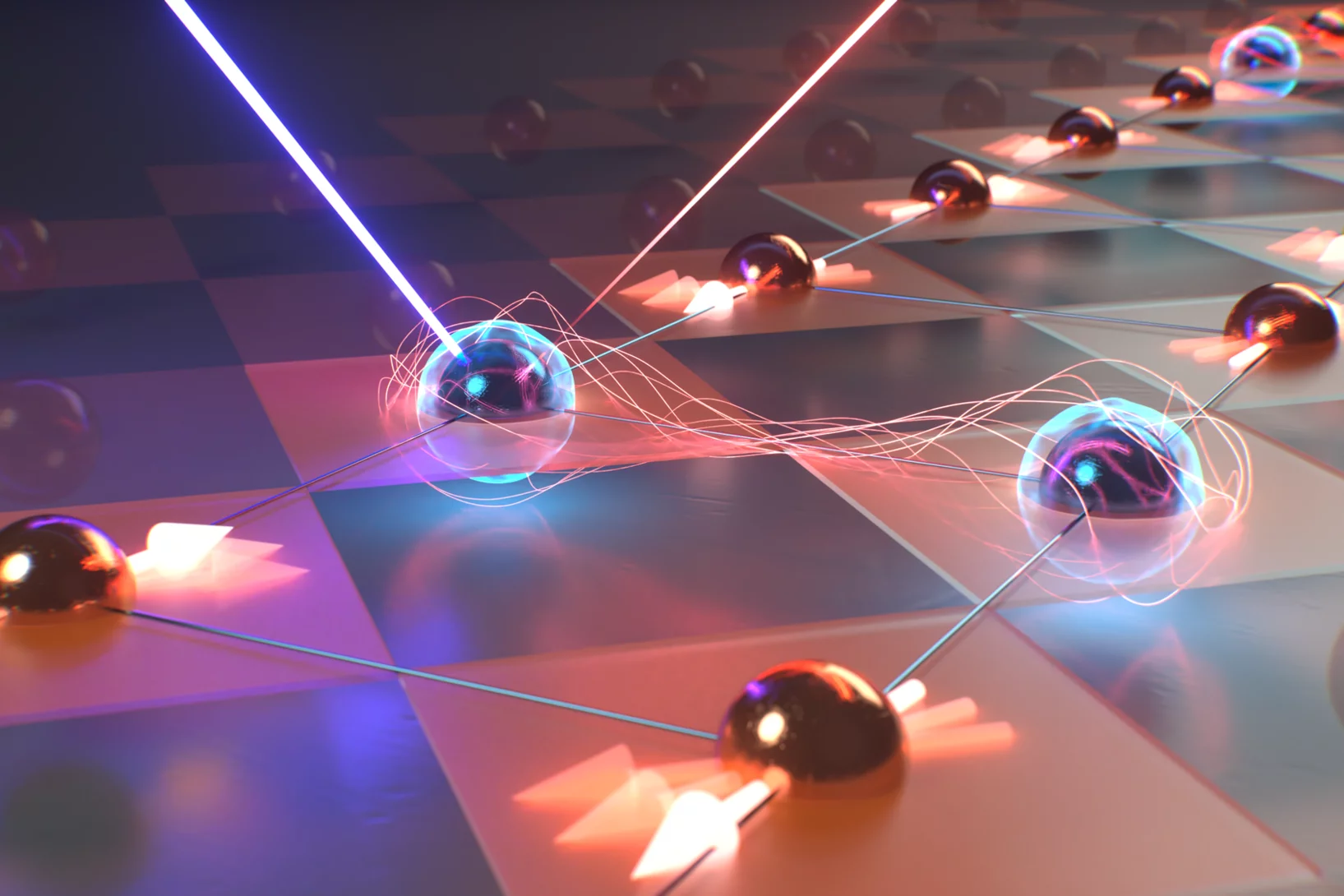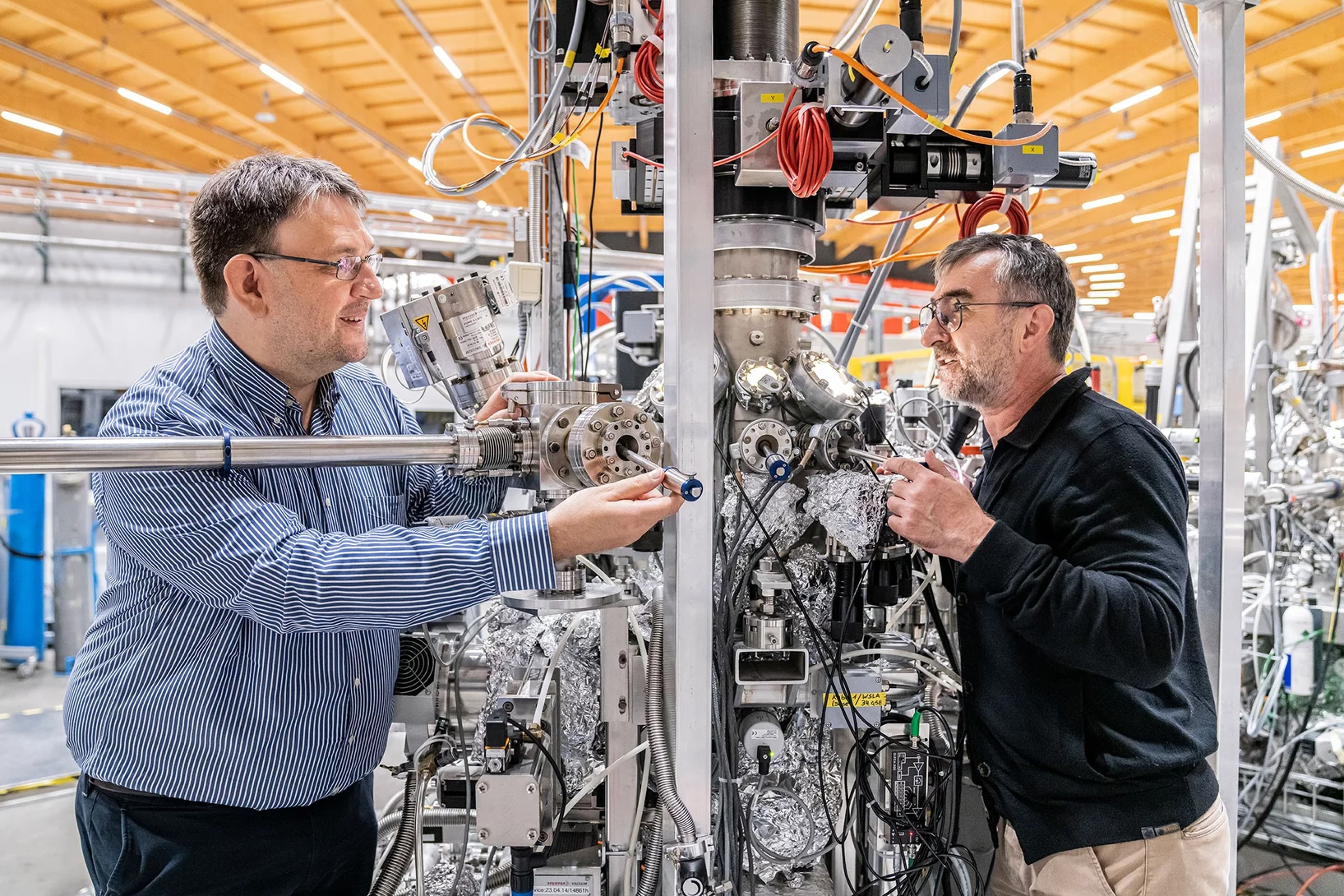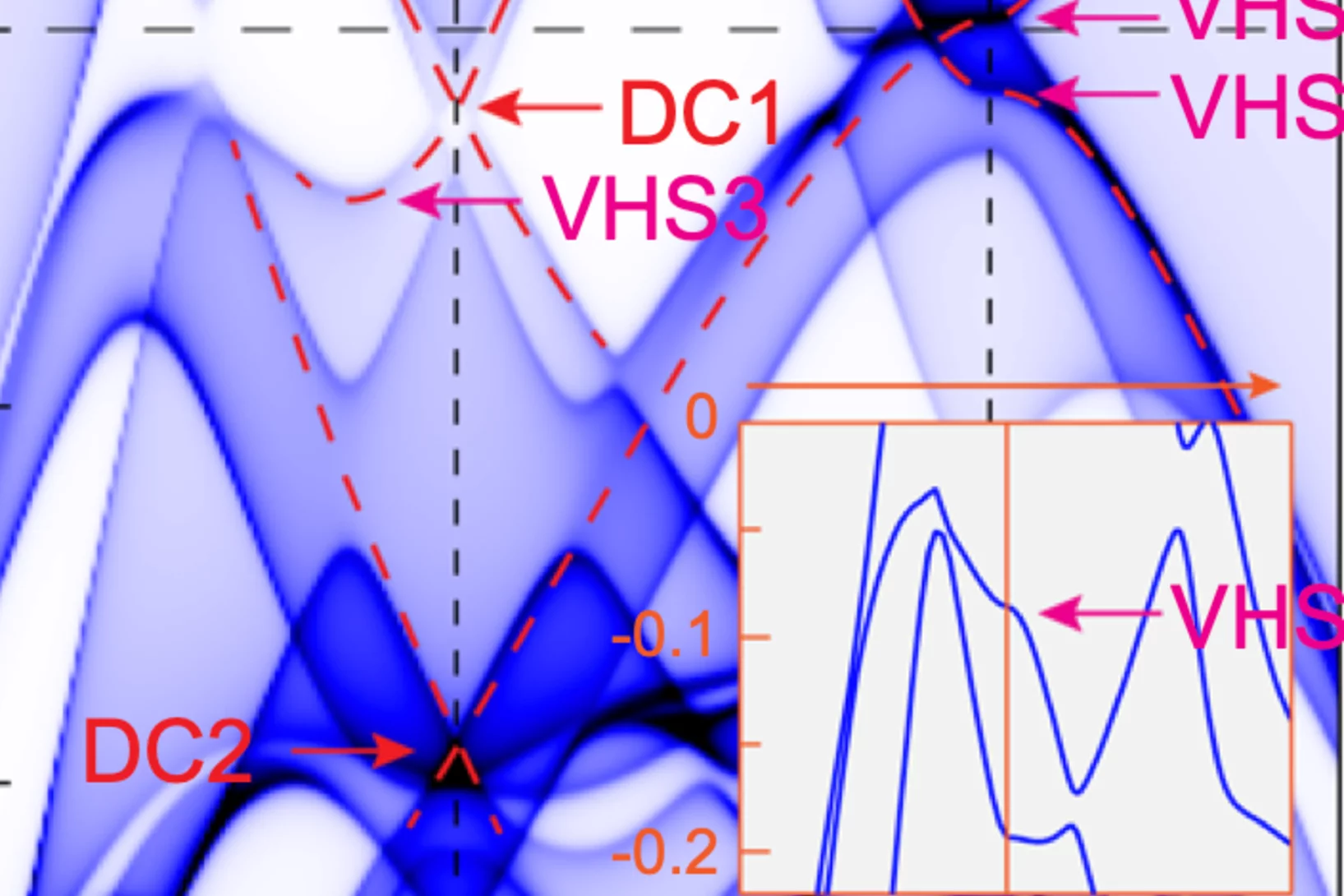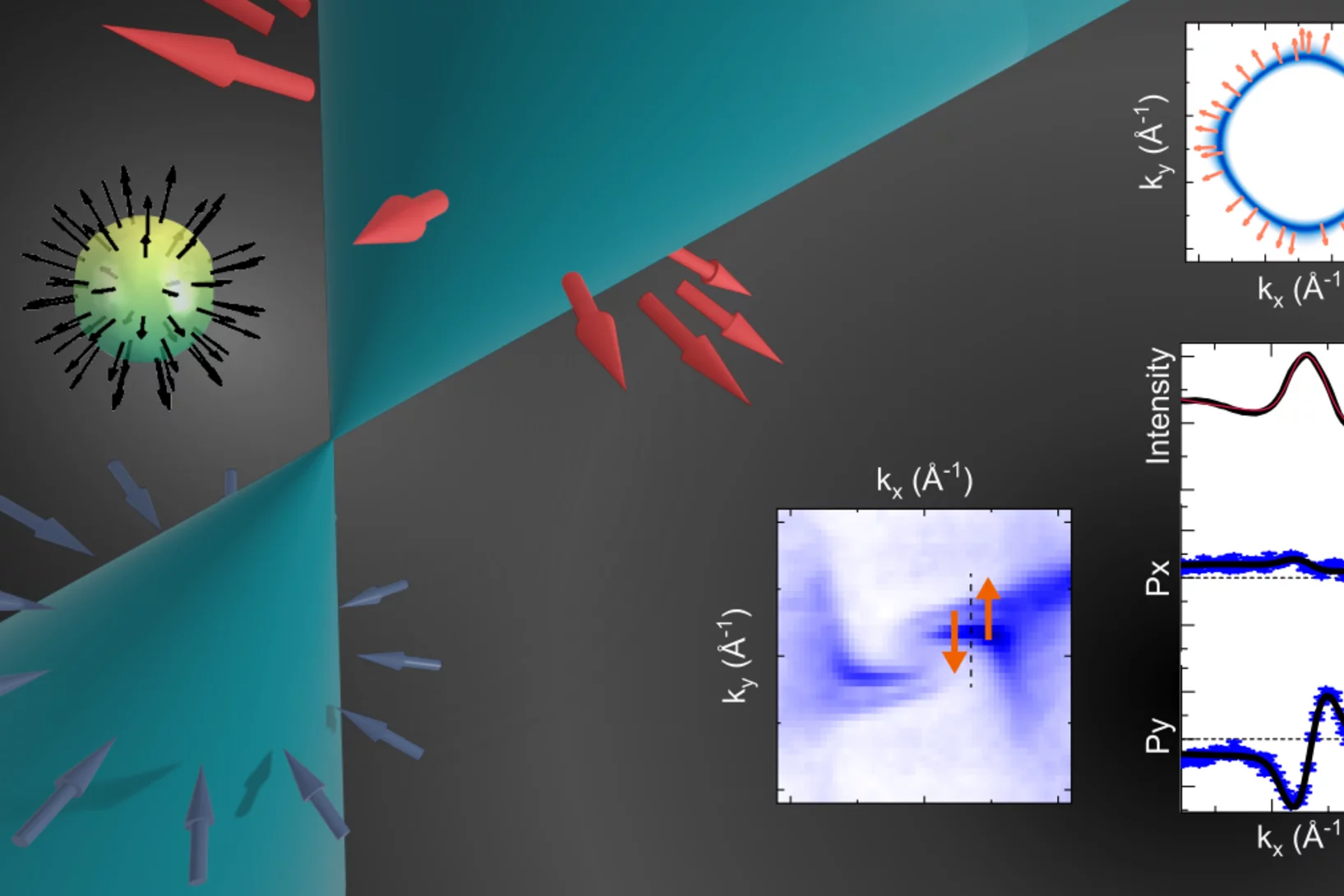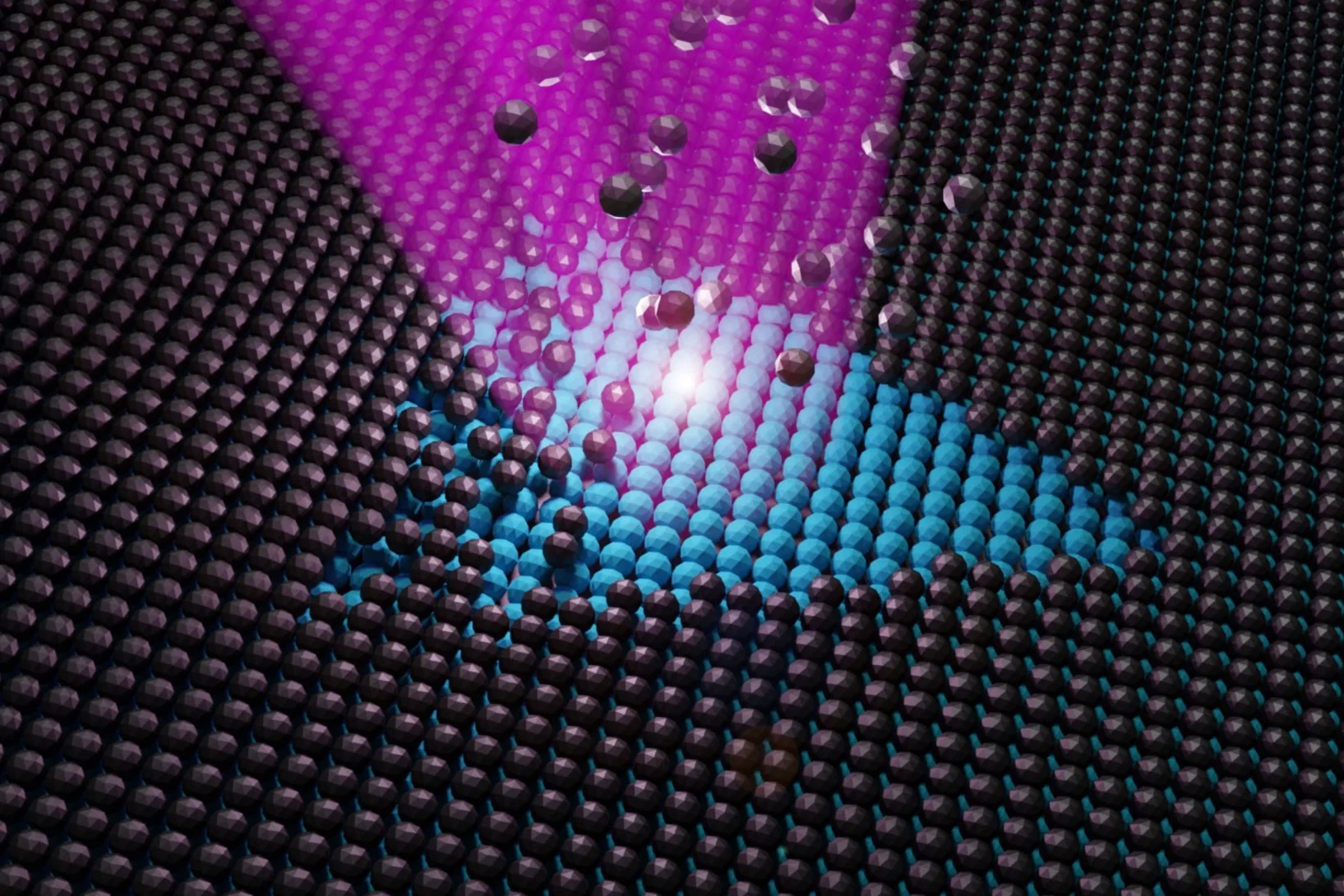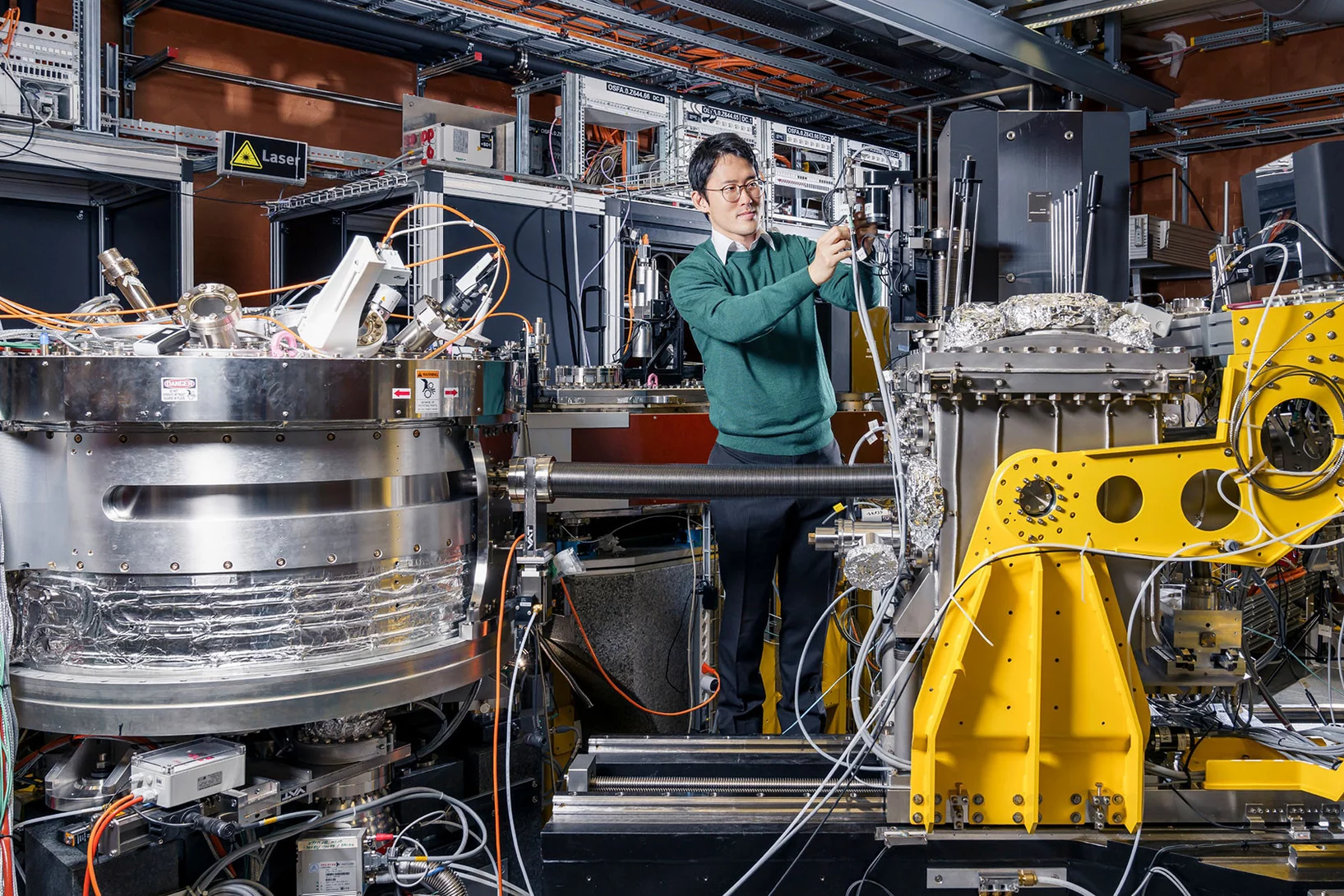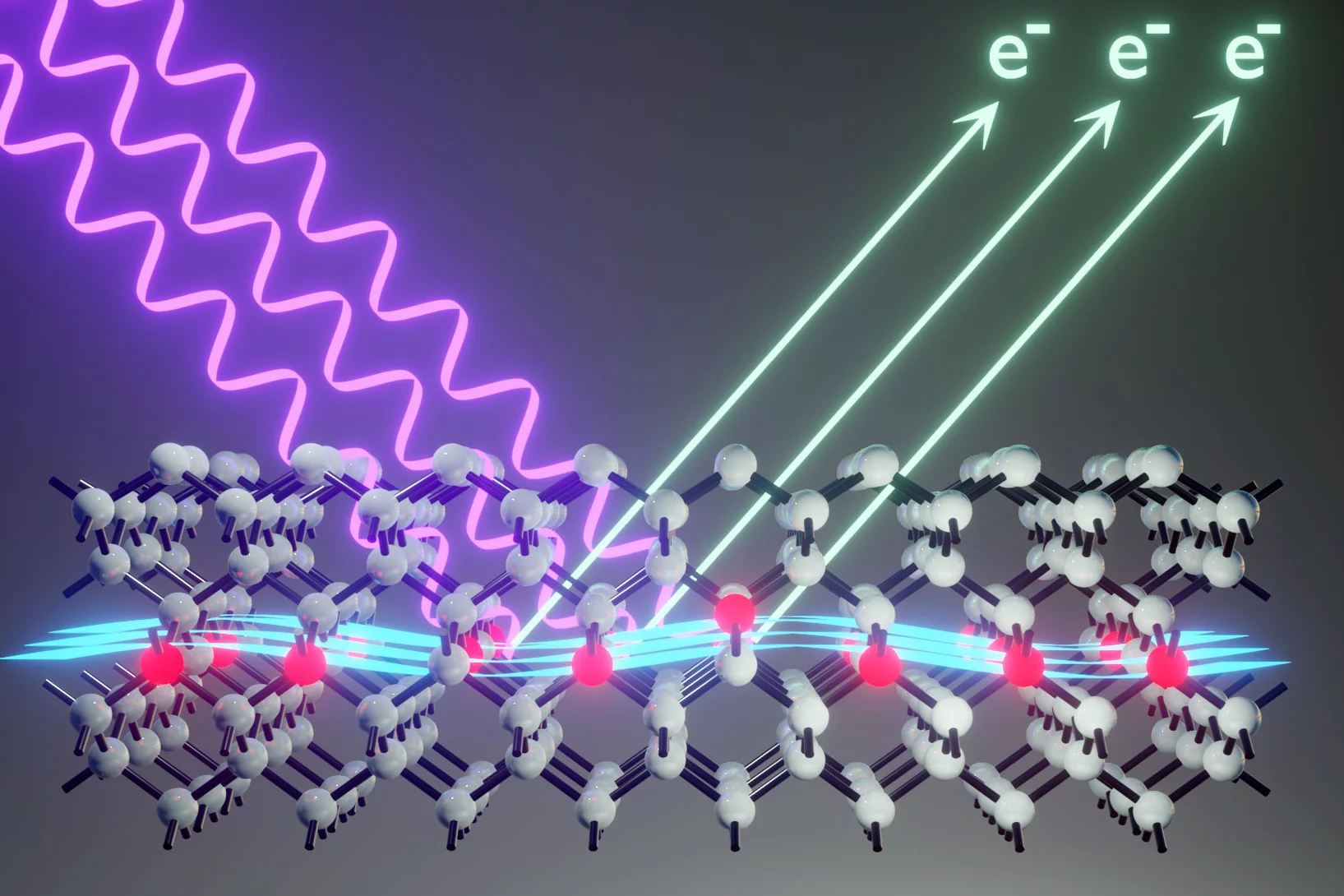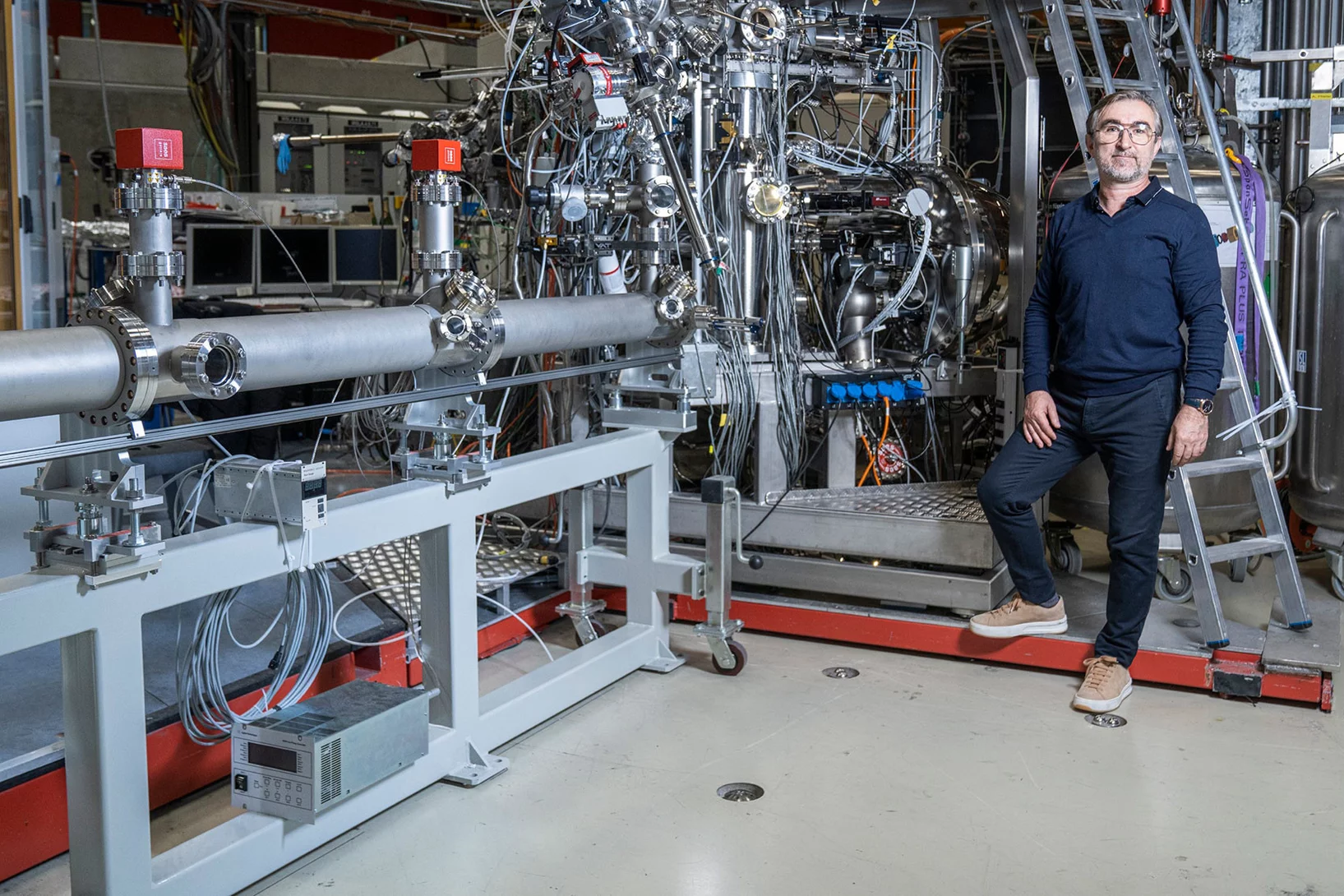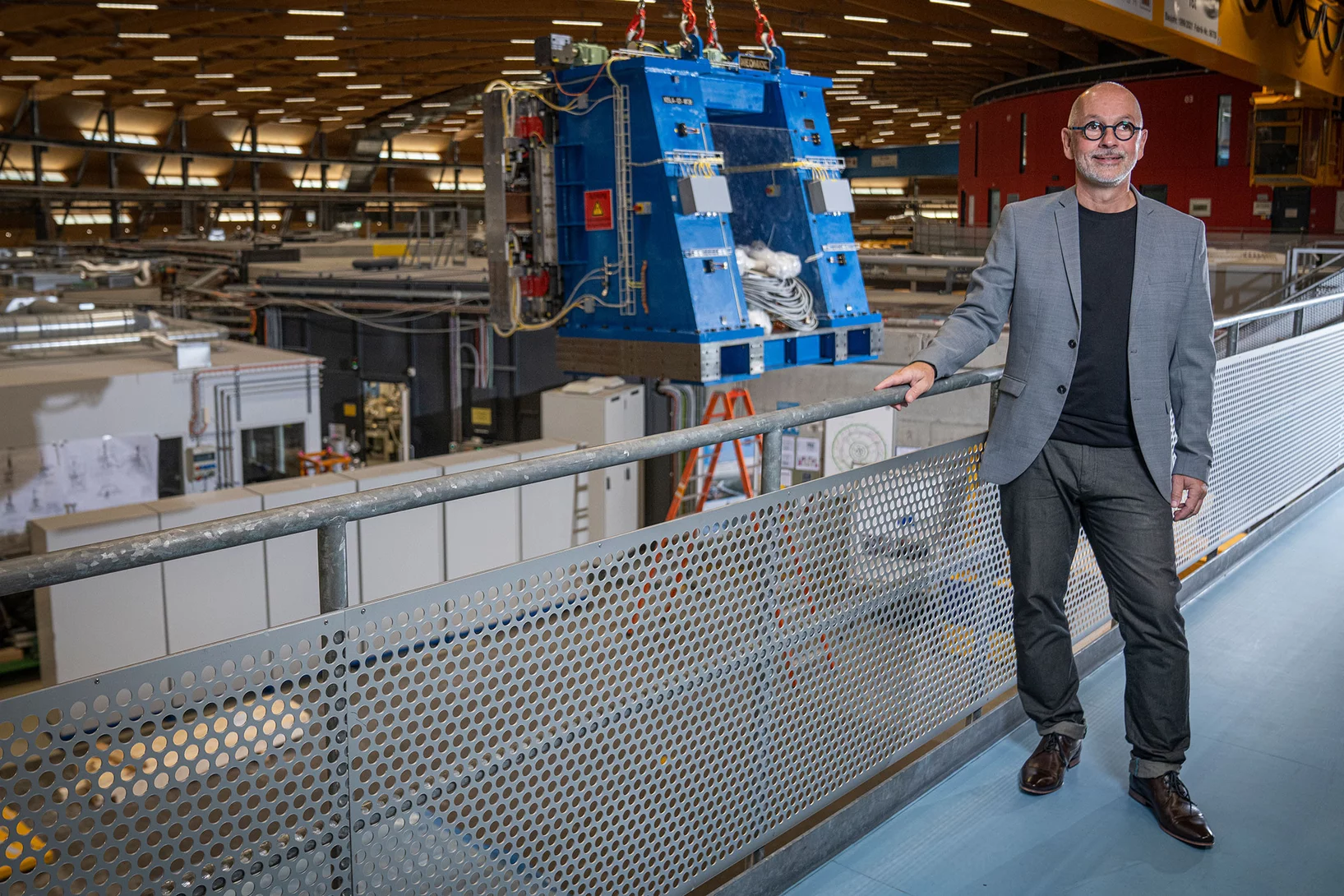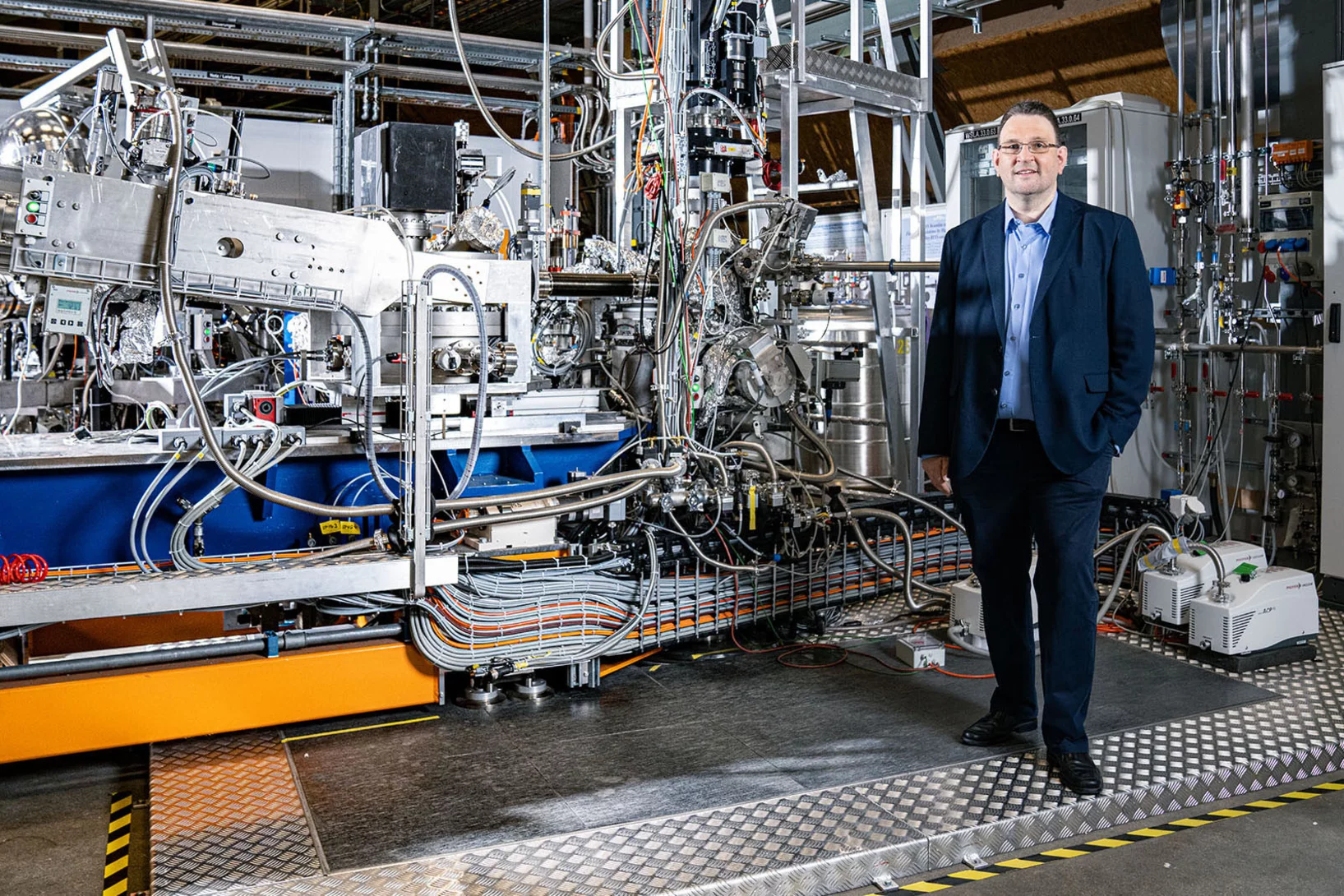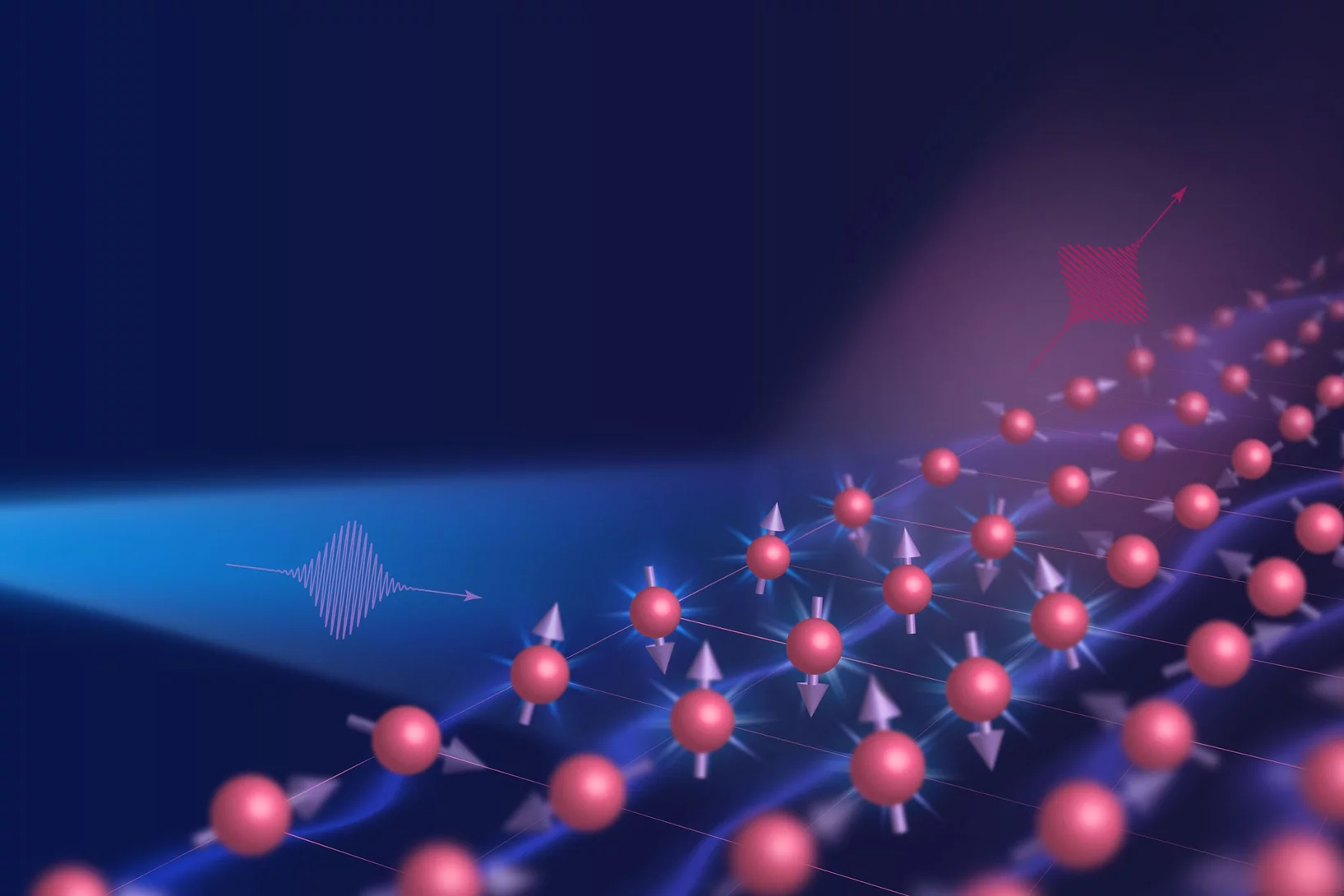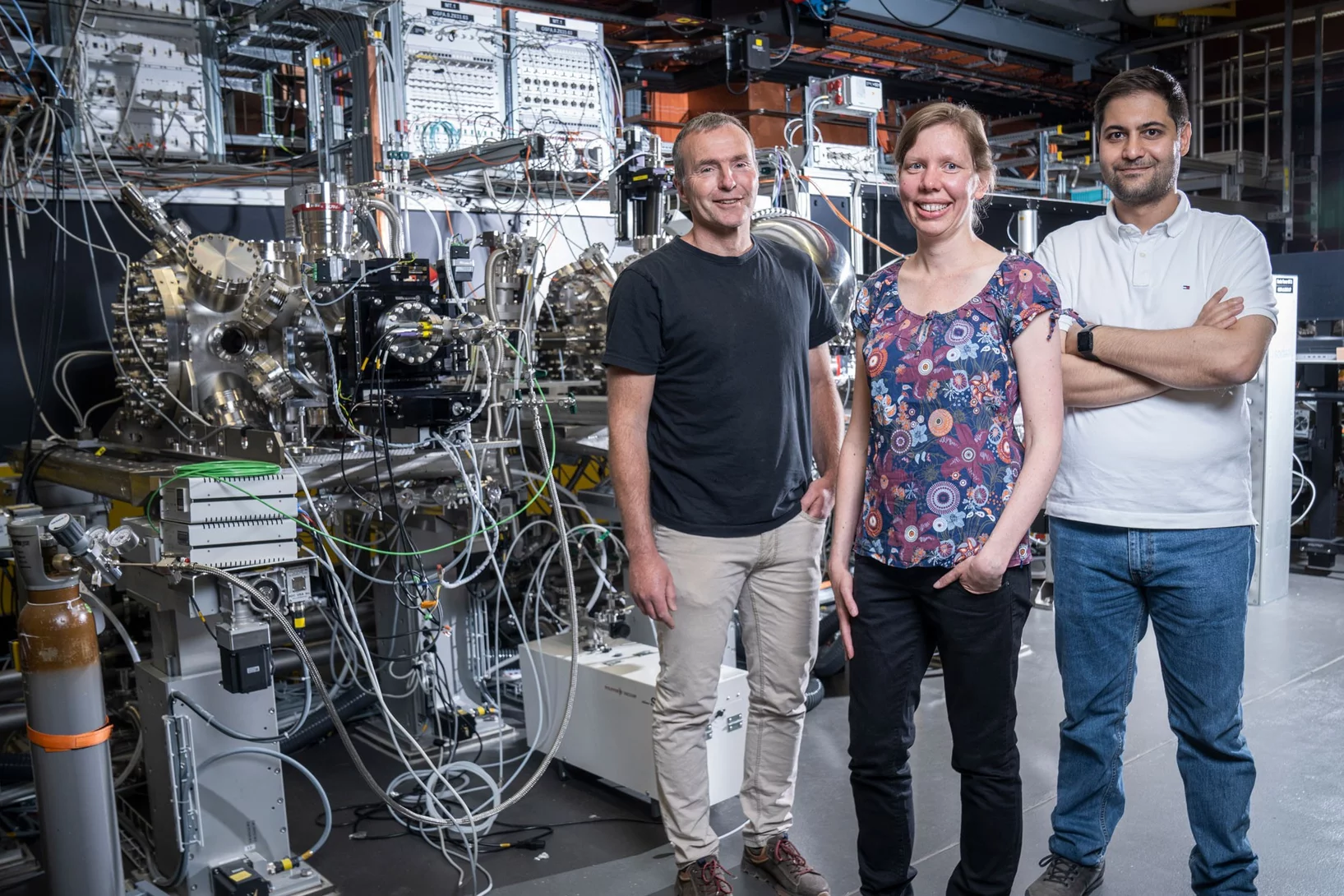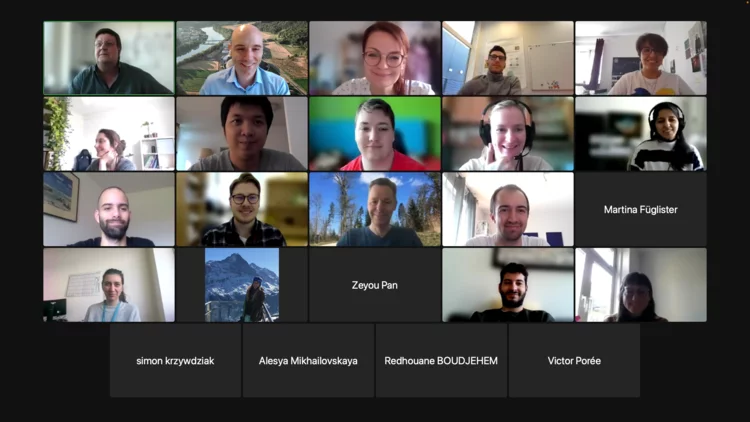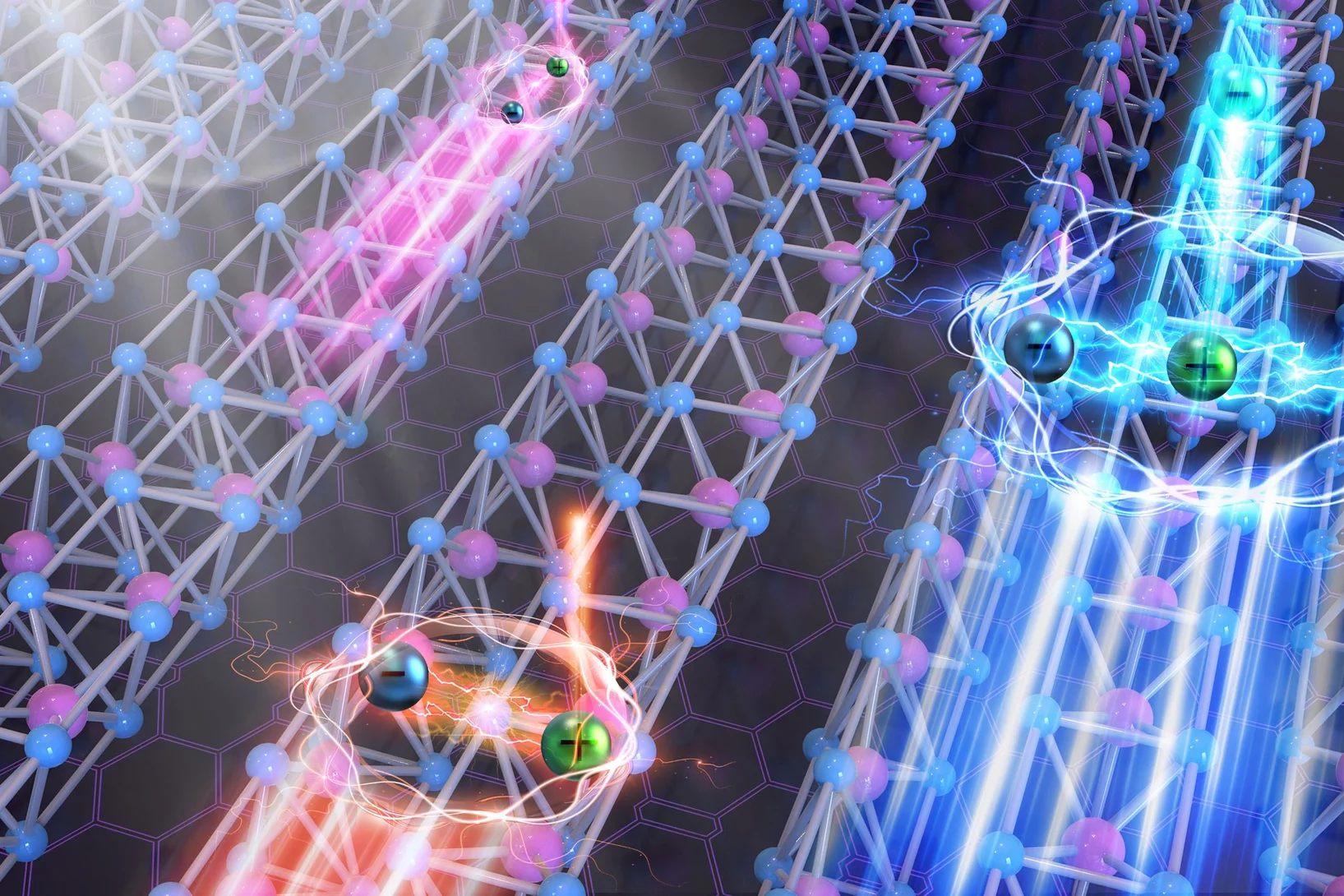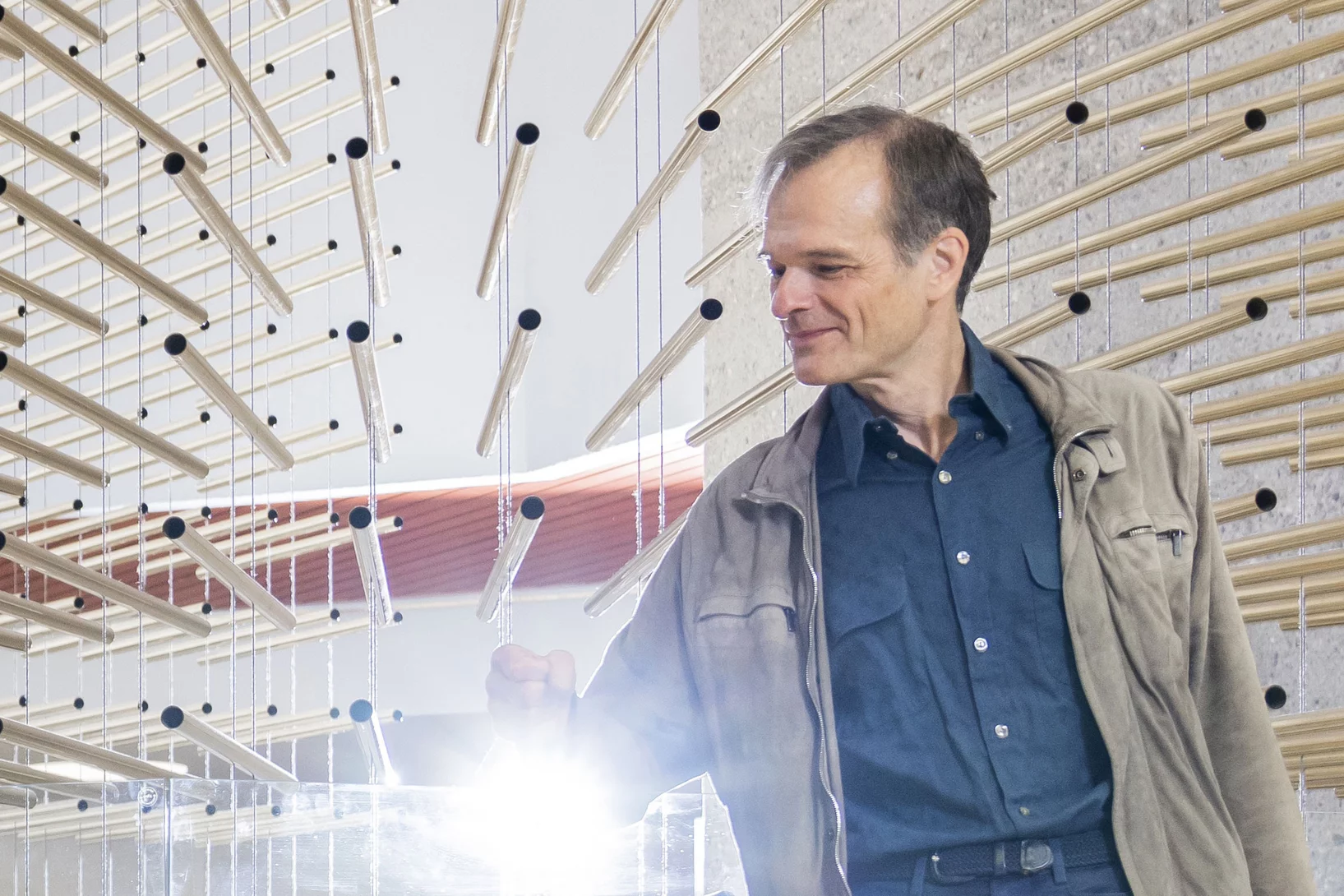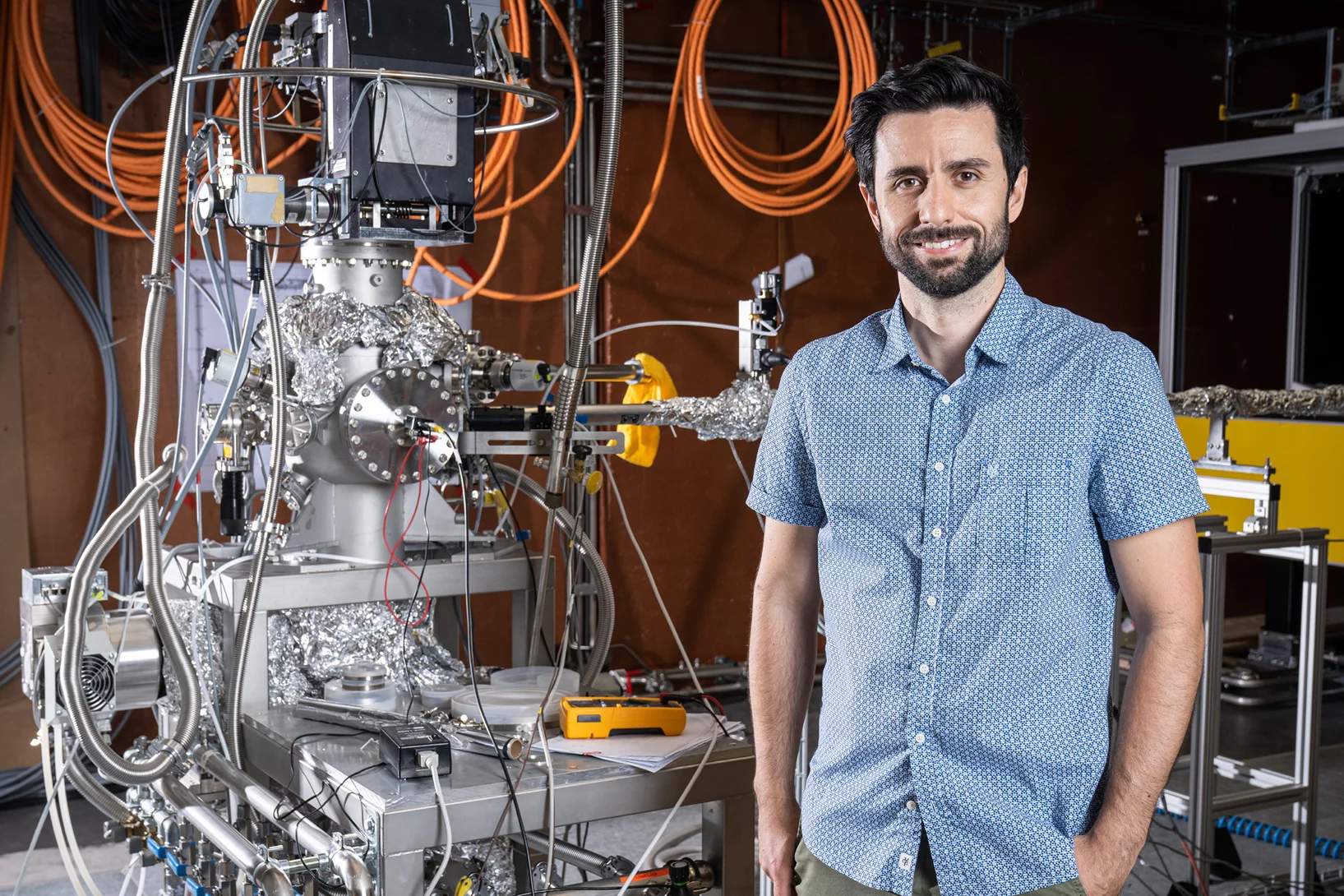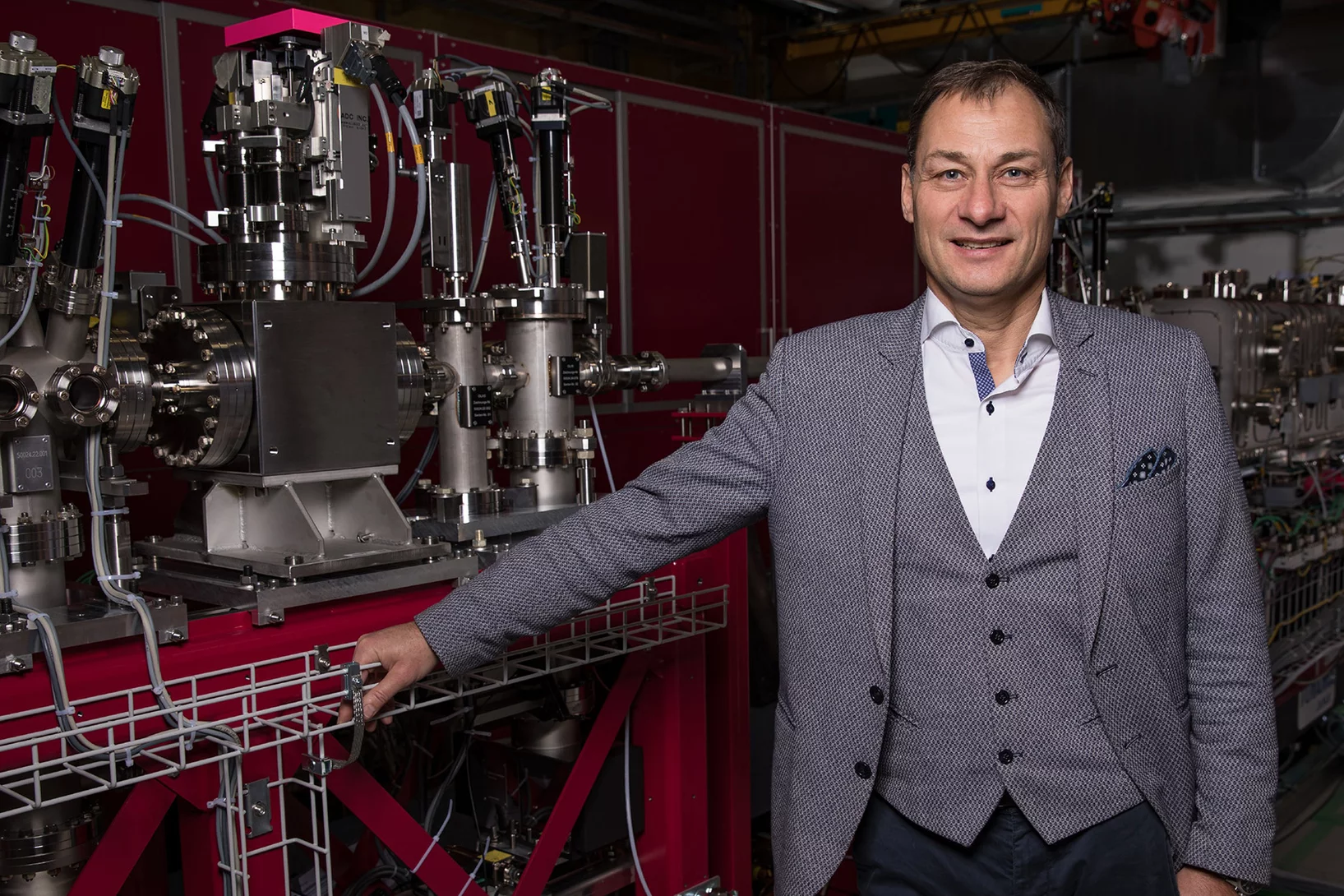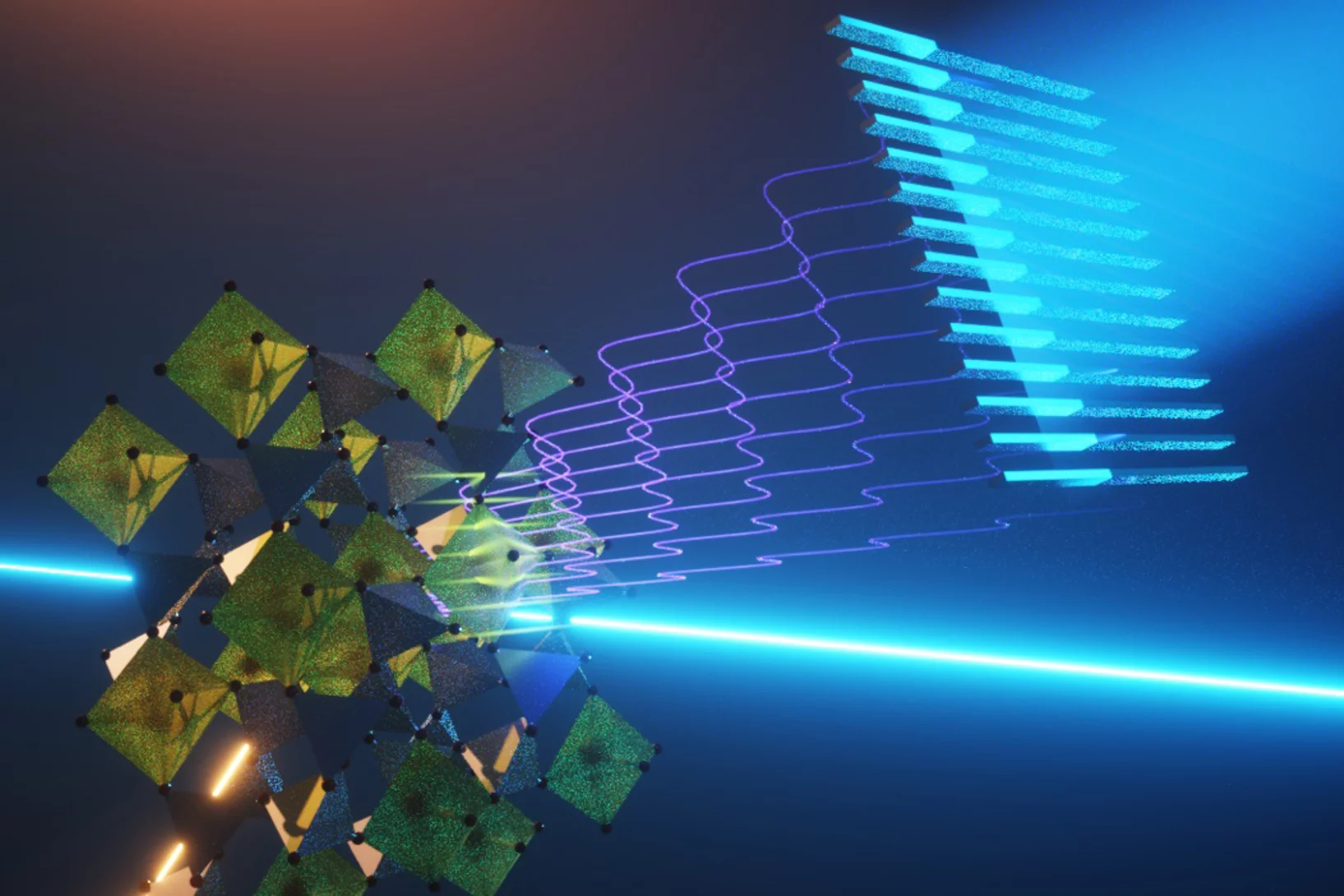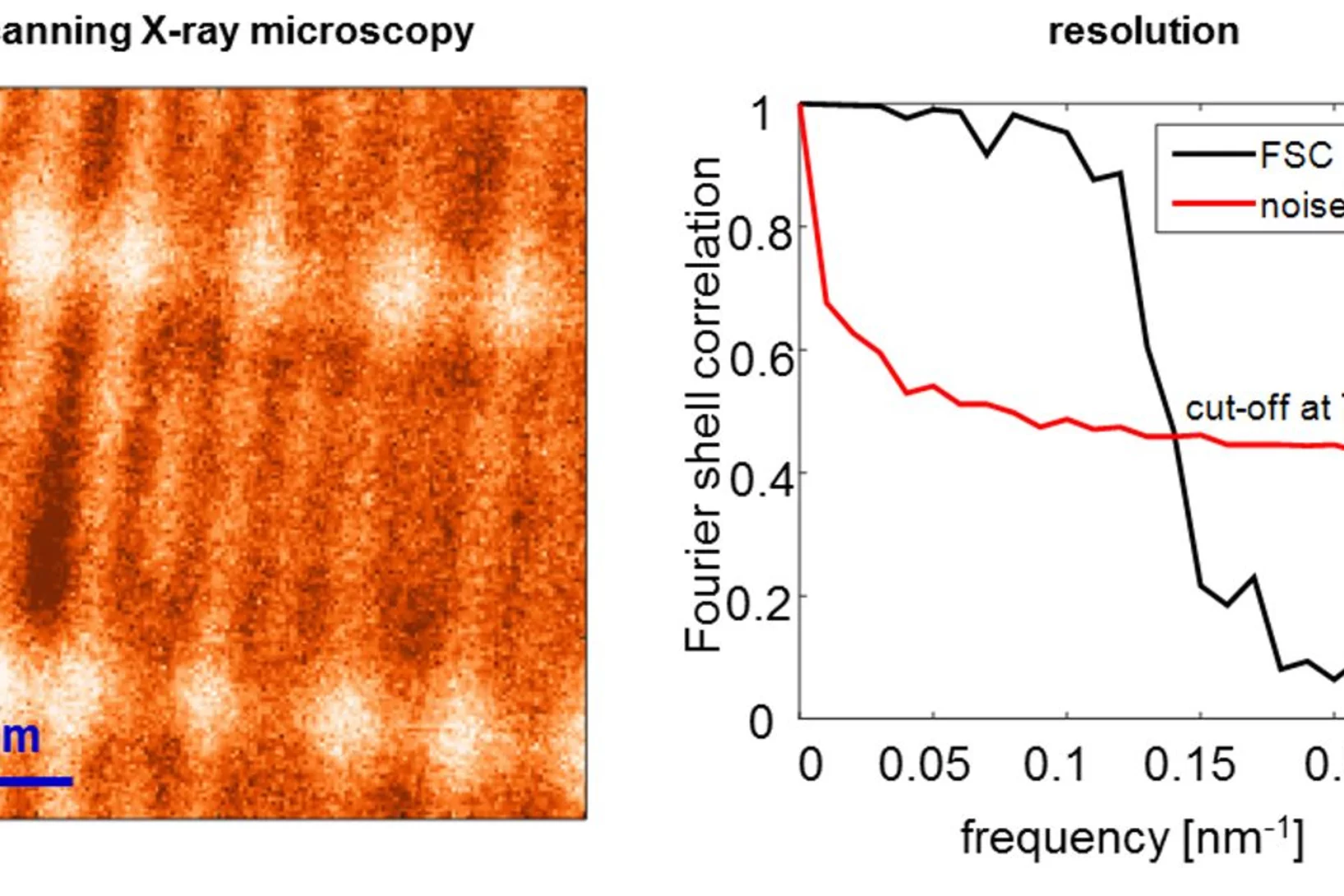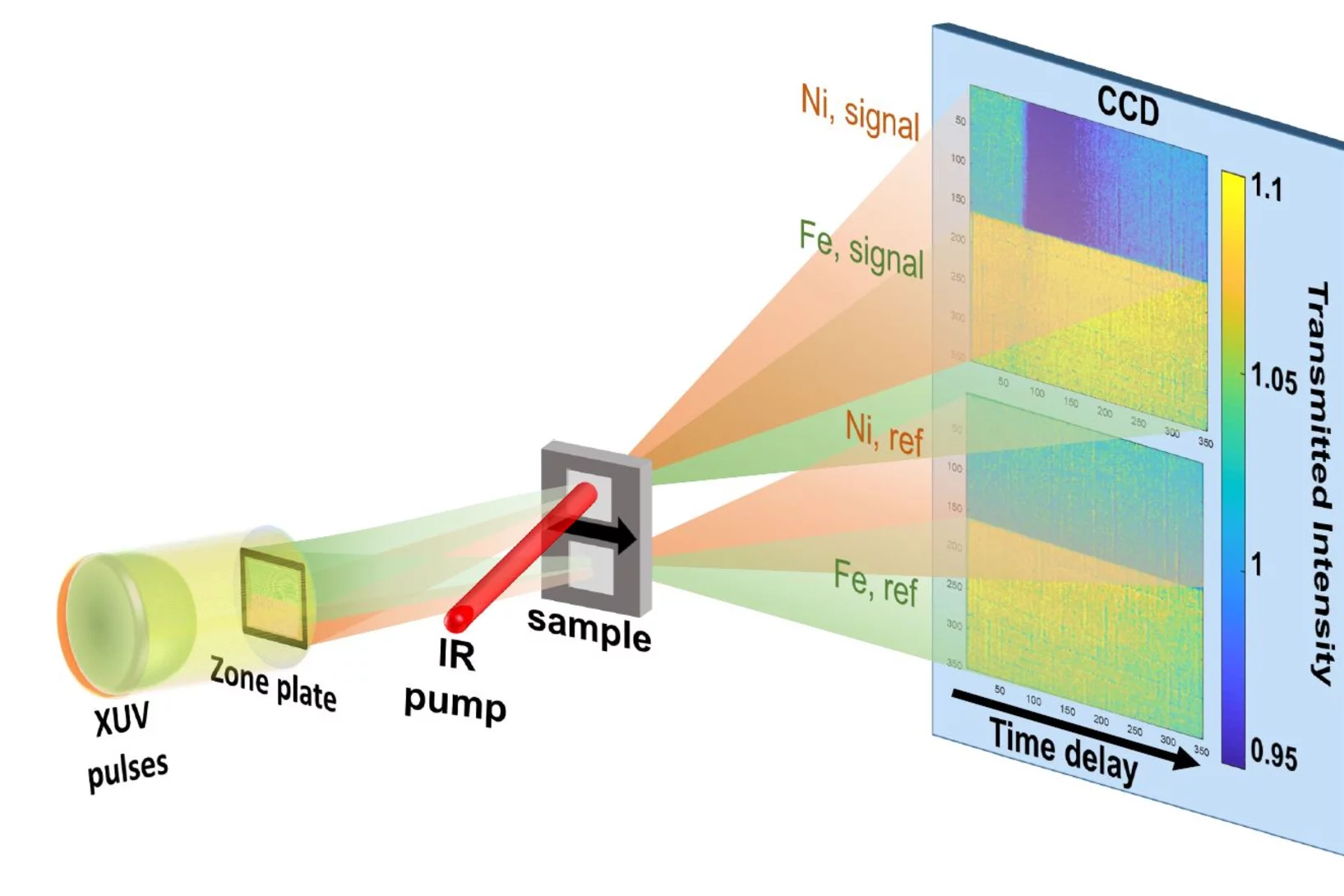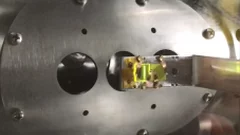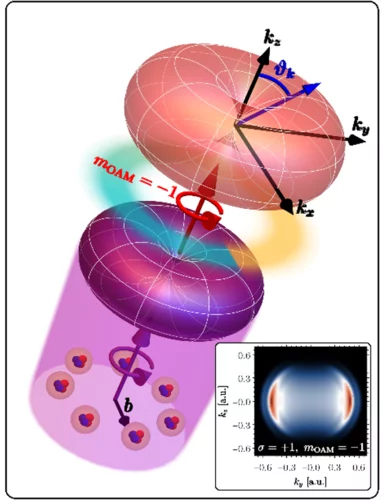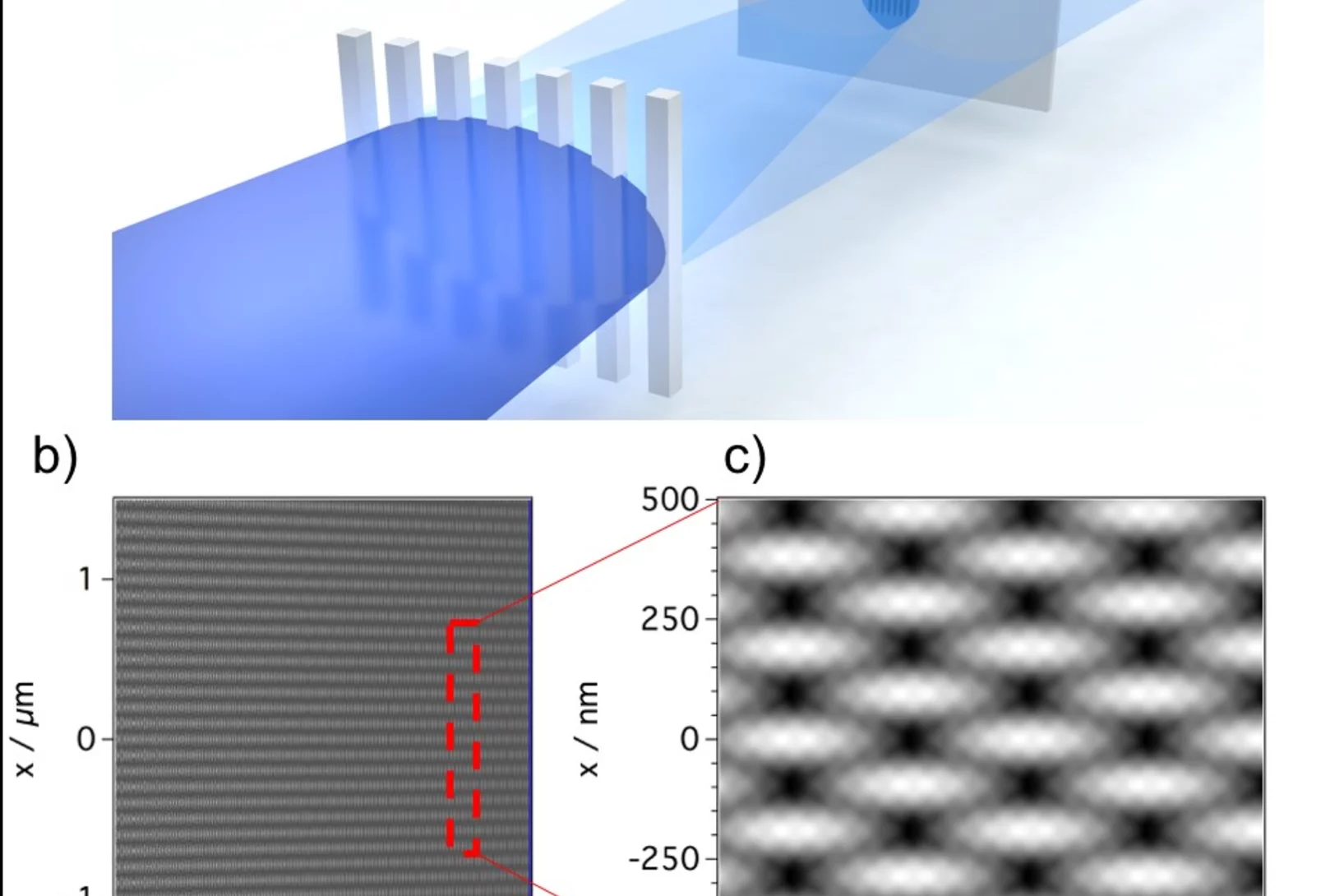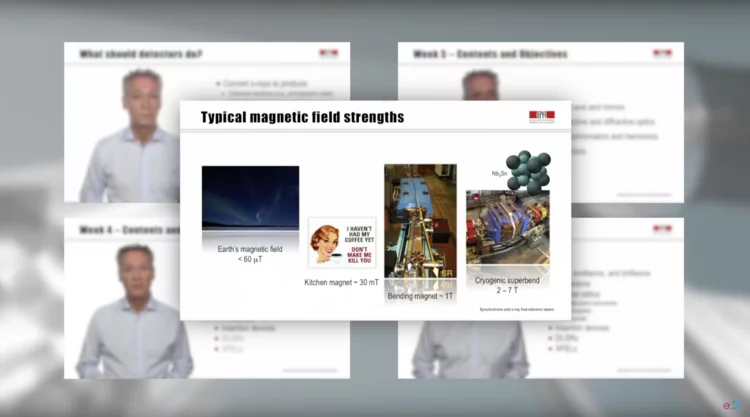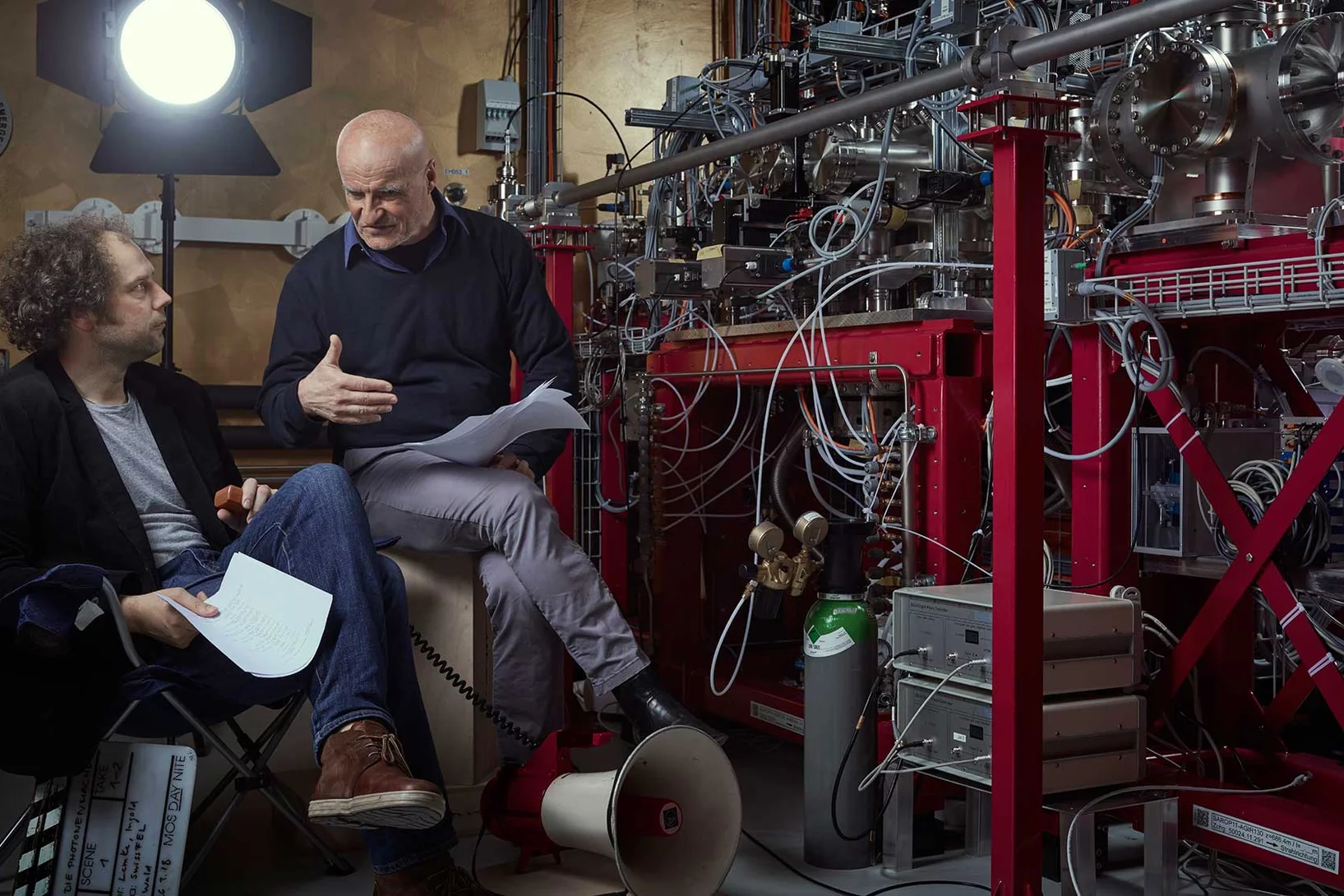Show filters
Chiral phonons in polar LiNbO3
Resonant inelastic x-ray scattering reveals that lattice vibrations can be chiral in a polar material, with phonons having opposite handedness depending on their direction in momentum space.
Unravelling the coexistence of insulating and metallic-like excitations in SrIrO₃
A team led by researchers from the Paul Scherrer Institute PSI used resonant inelastic X-ray scattering to probe spin and charge fluctuations in atomically engineered SrIrO₃. The results revealed that insulator-like and metallic-like modes can simultaneously emerge in a correlated 5d semimetal, advancing the understanding of “strange metal” behaviour in spin–orbit coupled systems.
Tuning chirality amplitude at ultrafast timescales in chiral CsCuCl3
We quantify “how chiral” a crystal is, and demonstrate its tunability at ultrafast timescales. This achievement does open up a new direction in chirality-related condensed matter physics and on emergent phenomena, which have both attracted significant attention recently.
Stabilising fleeting quantum states with light
X-rays from SwissFEL probe emergent properties of quantum materials
Magnetism in thin layers: One electron makes the difference
An important step towards novel computer memory
Phonon promoted charge density wave in topological kagome metal ScV6Sn6
Charge density wave (CDW) orders in vanadium-based kagome metals have recently received tremendous attention, yet their origin remains a topic of debate. The discovery of ScV6Sn6, a bilayer kagome metal featuring an intriguing √3 × √3 × √3 CDW order, offers a novel platform to explore the underlying mechanism behind the unconventional CDW. Here we combine ...
Weyl spin-momentum locking in a chiral topological semimetal
Spin–orbit coupling in noncentrosymmetric crystals leads to spin–momentum locking – a directional relationship between an electron’s spin angular momentum and its linear momentum. Isotropic orthogonal Rashba spin–momentum locking has been studied for decades, while its counterpart, isotropic parallel Weyl spin–momentum locking has remained elusive in experiments. Theory predicts ...
Extreme ultraviolet for scalable silicon quantum devices
Experiments at the Swiss Light Source (SLS) show the potential of extreme ultraviolet light (EUV) to make the building blocks of scalable quantum computers.
The secret life of an electromagnon
SwissFEL sheds light on how lattice and atomic spins jiggle together.
Unveiling ultra-thin electron liquids in silicon
Soft X-rays enable scientists to visualise non-invasively the electronic properties of ultra-thin dopant layers buried within semiconductor wafers.
New materials for the computer of the future
Researchers are identifying and studying material compounds whose unique properties could lead to the development of novel types of chip.
A piece of PSI history sets off on a long journey
Off to new shores – a high-tech component is on its way from PSI to Australia by sea. In future, it will be deployed at the Australian Synchrotron in Melbourne.
A better understanding of water
Potentiometric map of water molecules created
Spin keeps electrons in line in iron-based superconductor
Electronic nematicity, thought to be an ingredient in high temperature superconductivity, is primarily spin driven in FeSe finds a study in Nature Physics.
New SwissFEL soft X-ray endstation welcomes first users
Maloja is go. First user experiments mark a double first, not only for the Maloja endstation but also for the second beamline of SwissFEL, Athos.
Hercules School 2022
PSI hosted again the Hercules School in March 2022. We had the pleasure to welcome 20 international PhD students, PostDocs and scientists to demonstrate our state-of-the-art techniques and methodologies at our large scale facilities, the Swiss Light Source (SLS), the Swiss Spallation Neutron Source (SINQ) and our free electron laser SwissFEL.
Mobile excitons as neutral information carriers
These quasiparticles have the potential to revolutionise electronics - if they can move. Mobile excitons have now been observed for the first time in a metal.
Towards compact quantum computers, thanks to topology
In pursuit of particularly stable quantum bits, researchers have closely examined the electron distribution in two semiconductors.
First light at Furka: The experiments can begin
The path to experiments that are unique in the world is now open.
No rose-coloured glasses here
Light is essential for life, and for researchers it is also a wonderful tool to better understand the structure of materials.
Uniquely sharp X-ray view
A new PSI method allows quantum-physical research on materials with the aid of X-ray lasers.
World Record: 7 nm Resolution in Scanning Soft X-ray Microscopy
During the past decade, scientists have put high effort to achieve sub-10 nm resolution in X-ray microscopy. Recent developments in high-resolution lithography-based diffractive optics, combined with the extreme stability and precision of the PolLux and HERMES scanning X-ray microscopes, resulted now in a so far unreached resolution of seven nanometers in scanning soft X-ray microscopy. Utilizing this highly precise microscopy technique with the X-ray magnetic circular dichroism effect, dimensionality effects in an ensemble of interacting magnetic nanoparticles can be revealed.
Two-color snapshots of ultrafast charge and spin dynamics
In a joint research effort, an international team of scientists lead by Emmanuelle Jal (Sorbonne Université) performed a time-resolved experiment at the FERMI free-electron laser to disclose the dynamic behavior of two magnetic element of a compount material in only one snapshot. The X-ray Optics and Applications group developed a dedicated optical element for this experiment that is usable with two different photon energies (colors) simultaneously.
First light in the SwissFEL Maloja endstation
The first endstation at the SwissFEL Athos soft X-ray branch is rapidly developing and on track for first experiments in 2021.
Photoelectric Effect with a Twist
In a joint research effort, an international team of scientists lead by Prof. Giovanni de Ninno (University of Nova Gorica, Elettra Sincrotrone Trieste) now demonstrated that an OAM-dependent dichroic effect can be observed on photoelectrons. The photoelectrons are released from a sample of He atoms that is excited by the strong extreme ultraviolet light pulses from the FERMI free electron laser, whereas the orbtial momentum is imprinted with an intense infrared laser pulse. The X-ray Optics and Applications group of PSI supported the team with their experience in the creation of OAM beams and during the experiments.
Transmission measurement at the Bernina branch of the Aramis Beamline of SwissFEL
An international collaboration consisting of metrology and photon diagnostics groups Germany, the U.S.A., Switzerland, and Japan performed a set of cross-calibration measurements of optical properties on the Bernina branch of the Aramis beamline [1]. The collaboration saw the DESY-developed gas detector, a novel diamond detector from Brookhaven, and a room temperature radiometer from AIST in Japan placed at the Bernina end station and measure the absolute intensity of the FEL light as it passed through the optical elements. The cross-calibrated measurements used in conjuction with the photon beam intensity-gas (PBIG) monitor at the front end of the Aramis beamline to characterize the performance of the optical components on the Bernina branch and then compare them to the expected theoretical values. The measurements were performed at photon energies of 6.08 and about 7.22 keV.
Towards X-ray Transient Grating Spectroscopy at SwissFEL
The high brilliance of new X-ray sources such as X-ray Free Electron Laser opens the way to non-linear spectroscopies. These techniques can probe ultrafast matter dynamics that would otherwise be inaccessible. One of these techniques, Transient Grating, involves the creation of a transient excitation grating by crossing X-ray beams on the sample. Scientists at PSI have realized a demonstration of such crossing by using an innovative approach well suited for the hard X-ray regime.
MOOCs – a paradigm shift in education
In March 2018, the nine-week MOOC “Introduction to synchrotrons and x-ray free-electron lasers” (abbreviated to “SYNCHROTRONx”) came online via the edX provider of the École Polytechnique Fédérale de Lausanne (EPFL), created by Phil Willmott of the Swiss Light Source, Paul Scherrer Institute. “MOOC” is an acronym for “massive open online course”, a teaching platform started in the first decade of this century, which has become increasingly popular in the last five to six years. MOOCs have no limits to participation and are free. Some of the most popular MOOCs can attract many tens of thousands of participants. Even the most specialized subjects may have an initial enrollment of over a thousand, more than an order of magnitude larger than that typically found in traditional higher education. There were over 70 million MOOC enrollments covering nearly 10’000 subjects offered by the top five providers in 2017 alone!
Movie directors with extra roles
Data storage devices based on novel materials are expected to make it possible to record information in a smaller space, at higher speed, and with greater energy efficiency than ever before. Movies shot with the X-ray laser show what happens inside potential new storage media, as well as how the processes by which the material switches between two states can be optimised.
Hollywood in the Würenlingen woods
With the X-ray laser SwissFEL, researchers at PSI want to produce movies of biomolecules in action. This can reveal how our eyes function or how new drugs work.

